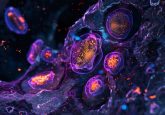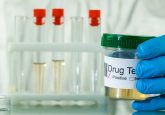New high-throughput technique for rapid experimentation

Researchers at Merck (NJ, USA) have conducted over 1500 experiments in less than one day utilizing a miniaturized, high-throughput automation platform to identify how synthetic molecules react under various conditions.
Typically in the drug discovery process, newly synthesized leads are screened under a range of conditions including temperature and concentration variations to monitor how they will react. Using existing technology, this time-consuming screening process can require around 1–10mg of compound, depending on the sophistication of the method and equipment used. These are costly amounts when the substrates required to make these complex molecules are often in short supply. As a result of this, many molecules designed may never get tested or even made.
A new method, devised by Tim Cernak, Spencer Dreher and colleagues at Merck Research Laboratories (NJ, USA) combines a high-throughput MS technique with biotechnology robotics. The new nanoscale method is capable of executing 1536 chemistry experiments a day with as little as 20 µg of material per reaction, producing 50—500 times more reaction data than existing methods.
The team has tested their miniaturized platform using palladium catalyzed cross-coupling reactions. The reaction system is run in dimethylsulfoxide with a combination of ligands and bases at room temperature.
”We are excited about how this technique could encourage the use of new chemistries in drug discovery. Medicinal chemists tend to steer towards the reactions they can trust as there’s little time and material for reactions that might fail,” commented Dreher.
Cernak noted, “Today, biochemists can run upwards of 100,000 experiments in a day on picograms of material per reaction,” describes Cernak.” He continued, “A chemist is lucky if they can run 96 reactions in a day on several milligrams of material per reaction. Our approach is an effort to enter the realm of high-throughput experimentation enjoyed by biochemists.”
Sources: Santanilla AB, Regalado EL, Pereira T et al. Nanomolar-scale high-throughput chemistry for the synthesis of complex molecules. Science. DOI: 10.1126/science.1259203 (2014). Nanomolar chemistry enables 1500 experiments in a single day.





